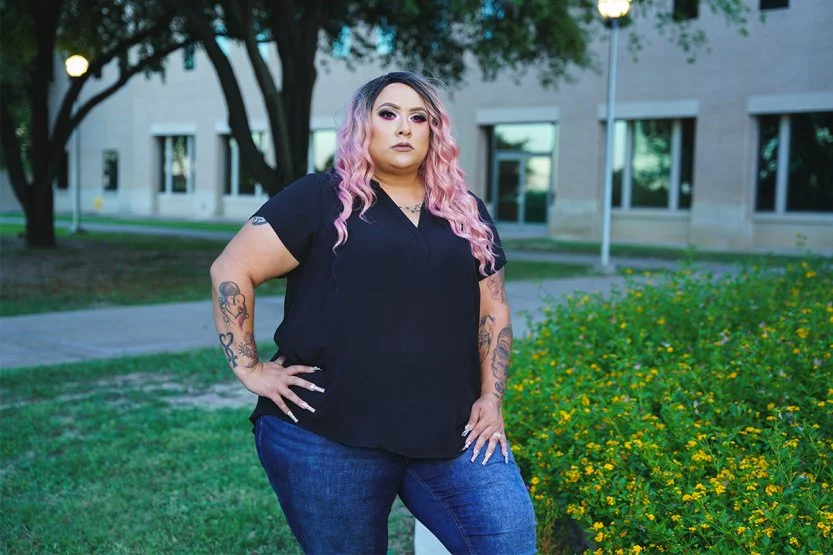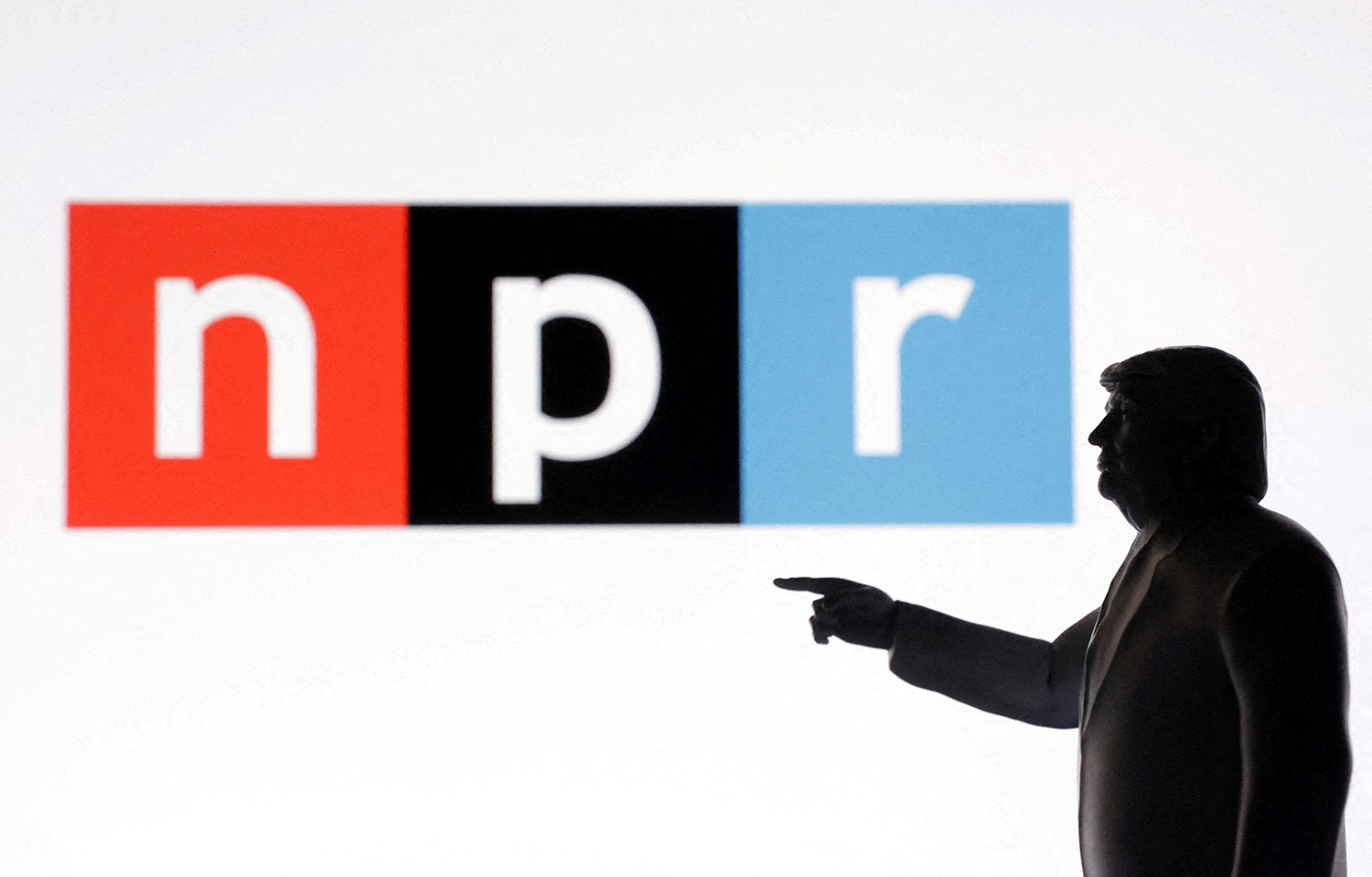The U.S. Court of Appeals for the Fifth Circuit heard arguments en banc Jan. 25 in the case of a Texas citizen journalist who was arrested for asking a police officer a question. Legal observers are watching this case which pits free speech against the qualified immunity protections of public officials.
Priscilla Villarreal, known to her 202,000 Facebook followers as “La Gordiloca” or “the big crazy lady,” was arrested in 2017 for releasing the name on her Facebook page “Lagordiloca News LaredoTx” of a U.S. Border Patrol agent who committed suicide. Villarreal contacted a Laredo Police Department, (LPD), officer seeking the agent’s name, shared it before the police issued a formal statement, and was later arrested and charged with a felony.
While the criminal charges against Villarreal were dropped, she filed suit against the LPD, the city of Laredo, Webb County, the local district attorney and others involved in her arrest. The lawsuit, filed in the U.S. District Court for the Southern District of Texas in May 2019, argued that the actions of the LPD to arrest and charge Villarreal infringed on the First Amendment right to free speech and press.
“Defendants’ unconstitutional conduct, if left unchecked, could ensnare and chill any journalist—professional or citizen—who lawfully gathers newsworthy information and happens to disseminate it before government officials do the same,” the complaint stated. “The Constitution demands that such conduct be deterred.”
The Texas law in which Villarreal was charged, Texas Penal Code 39.06 (c), states that a person commits a Class 3 felony if they “solicit[] or receive[] from a public servant information that (1) the public servant has access to by means of his office or employment; and (2) has not been made public,” according to the complaint. But, this information must also be solicited “with intent to obtain a benefit or with intent to harm or defraud another.”
The 23-year-old statute has never been invoked in any past prosecutions, according to the complaint.
Villarreal received the agent’s name from Officer Barbara Goodman, who was later investigated internally for sharing information with Villarreal on numerous occasions, according to a 2017 report in the Laredo Morning Times.
JT Morris of the Foundation for Individual Rights and Expression, one of Villarreal’s attorneys, says she never indicated that Goodman or any other LPD officer was obliged to provide the information she requested.
“She does have a First Amendment right, and a clearly established one, to receive and publish information that government officials volunteer,” he said in an interview with First Amendment Watch. “All she was doing was exercising her right to free speech. There wasn’t independently criminal conduct there like bribery or extortion or hacking into a computer, or asking Officer Goodman to do that.”
In May 2020, a federal district judge dismissed Villarreal’s complaint, citing qualified immunity which “shields government actors from being sued unless their conduct violates a clearly established constitutional or statutory right that any reasonable person would have known.”
Villarreal appealed the decision to the Fifth Circuit, and in August 2022 U.S. Circuit Judge James C. Ho wrote that “If the First Amendment means anything, it surely means that a citizen journalist has the right to ask a public official a question, without fear of being imprisoned.” But, Chief Judge Priscilla Richman wrote a dissenting opinion, stating that Judge Ho’s ruling “is likely to confuse the bench and the bar as to when a First Amendment violation is ‘obvious’ for purposes of qualified immunity.” A request from the defendants for a rehearing en banc in front of the 16 judge panel vacated the August 2022 decision.
Morris says that he would be speculating to say why the Fifth Circuit granted the en banc petition.
The argument in front of the en banc panel, which Morris says has remained similar, focused on the First Amendment right to ask a public official a question and publish the information, ultimately disregarding the qualified immunity argument “because a reasonable officer wouldn’t arrest her knowing she was just exercising that right,” he said.
During oral arguments, Morris urged the panel to understand the “obvious” First Amendment violation. While Villarreal is a self-proclaimed citizen journalist, the “label doesn’t matter,” Morris told the court, as the “rights of the press are coextensive with the rights of citizens.”
But, William McKamie, attorney for the city of Laredo, argued in front of the panel that Villarreal did not go through the correct channels as any journalist would, such as filing a public information request or going through the public relations office of the LPD. The panel questioned what the difference was between Villarreal calling Officer Goodman to request information as opposed to filing a public information request.
McKamie added that there was a direct relationship between Villarreal’s action and the expansion of her social media presence. When the 2019 complaint was filed, Villarreal had 120,000 followers. In nearly four years, she’s increased her Facebook following by 82,000.
Aside from a larger following, McKamie noted that Villarreal also benefited from “meals, sponsorship and endorsement,” citing the 2019 complaint. The complaint stated that “appreciative readers” would give Villarreal free meals, and would sometimes promote local businesses in exchange for reimbursement fees, but she did not “generate regular revenue” from her posts.
To violate the Texas statute the solicitation of information must be done to “benefit” oneself, but Morris told First Amendment Watch that accepting the argument that this was soliciting information for benefit would subject online journalism publications, for example, which often include advertisements of some kind leading to economic gain, to criminal liability under the statute.
Morris said it was unnecessary to challenge the constitutionality of the statute as his argument focuses on the fact that “you can’t use a state law to turn protected speech into unprotected conduct.”
In his closing oral arguments, Morris noted that the government is not required to release all information publicly. But he argued that the government does not have the right to “turn around and punish those who receive” and disseminate information volunteered by government officials.
“The key point here is that it is clearly established that citizens and the press alike have a First Amendment right to ask officials questions,” he concluded.
Aug. 12, 2022 — U.S. Court of Appeals for the Fifth Circuit Decision
May 29, 2019 — Villarreal’s Initial Complaint
Tags




